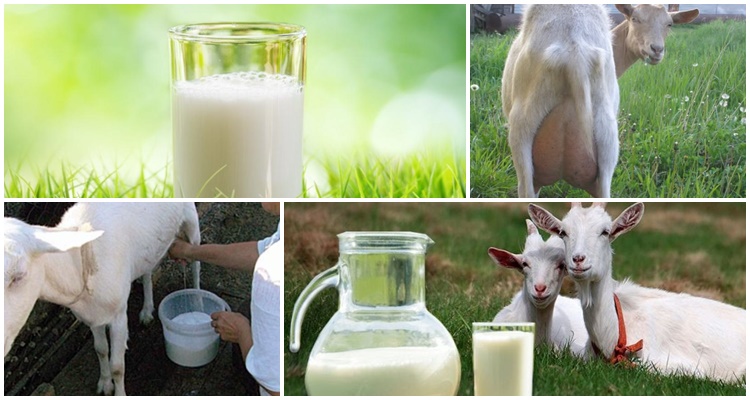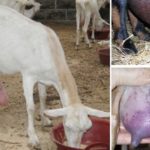Why does goat's milk sometimes smell sharply like ammonia, drugs, mustiness or alcohol, although it should not contain any extraneous strong aromas? The fact is that this product has the property of quickly absorbing all surrounding aromas, so after a while the milk yield also acquires a similar shade. The taste and smell of the product obtained from goats depend on the conditions in which the animals are kept, whether they have diseases and whether their diet is balanced.
Why does a goat's milk smell?
If milk has an unpleasant odor, then this product should not be consumed until the cause is eliminated.
Ammonia smell
The pungent odor of ammonia coming from fresh milk is a consequence of an animal illness:
- Ketosis is a disease that occurs in the late stages of a goat’s pregnancy and during the first weeks of lactation, during which the animal loses weight and refuses food and water. The disease occurs due to poor nutrition, which disrupts metabolism and also increases the concentration of ketone bodies in the blood in the form of acetoacetic acid or acetone. Ketosis poses a threat to the health and life of the animal.
- Acidosis is a disease that affects goats due to an improper diet with excess carbohydrates and crude fiber, or a sudden change in the composition of the feed. In the acute form of acidosis, the animal may die.
- Fascioliasis is a disease caused by fasciolae, which originate in the bile ducts of the liver. They can appear in a goat’s body due to drinking water from stagnant bodies of water or eating grass in wetlands. The course of the disease has a detrimental effect on the health of the liver and the general condition of the body. With fascioliasis, the goat loses its appetite, becomes lethargic, and the body is exhausted. Often these symptoms lead to death.
- Escherichia coli. When milking, contaminated milk will differ from normal milk in the amount of foam.
Drug
Farmers often use medications for preventive or therapeutic purposes. Their presence in the goat’s body affects the smell of milk. During treatment of an animal, milk should absolutely not be consumed.
Alcoholic
The main reason for the appearance of an alcoholic odor in goat milk is the high content of bacteria that occurs as a result of non-compliance with the daily hygiene of the animal or its keeping in unsanitary conditions, as well as when milk is stored in dirty collection containers at low temperatures.
Musty
The presence of an “old” smell, first of all, indicates that the milk was kept warm and putrefactive bacteria began to form in it.
How to remove the smell of goat milk
To prevent a healthy drink from emitting an unpleasant aroma, you must follow simple rules:
- It is important to stick to your goat's milking schedule. In summer the animal is milked three times, and in winter - twice.
- Goats should not be in the same room as a male goat, because the strong odor emanating from the male is transferred to the goats and, as a result, to the milk.
- Maintaining hygiene in the barn. The room must be ventilated and kept clean. In order to reduce cleaning time, you can make an inclined floor, along the edge of which there will be a gutter. With this option, it will be easy and quick to wash away animal waste products using a hose, and the stall will always be clean.
- Hygiene during milking is no less important. To prevent infection, the udder should be washed with warm water before each milking.
- Goat bedding should be changed daily.
- Goats must be washed at least 2 times a week with warm water from a hose, and once a month when bathing, use a specialized shampoo for animals.
















